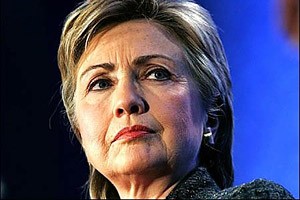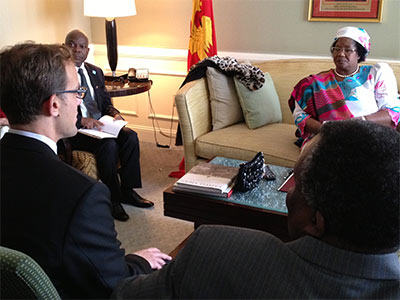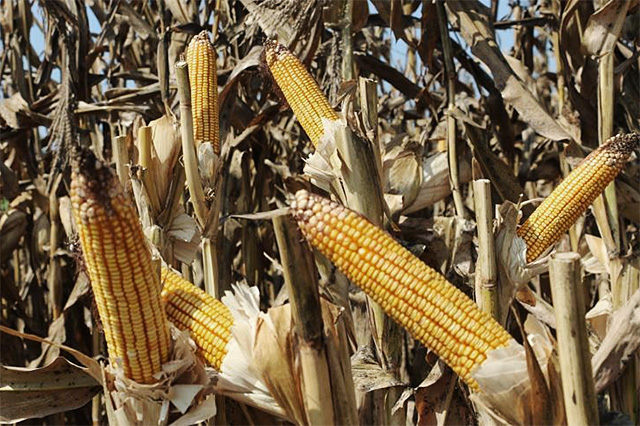The United States' partnership with Africa (by Hillary Clinton)
[Opinion] Last month, I went on a nine-country trip that took me from West Africa, to East Africa and the Horn, to Southern Africa. At every stop, I saw how America is working with our African partners-governments, the private sector, and civil society-to deliver concrete benefits for people. This work doesn't always draw headlines, and too few Africans and Americans are aware of what we're doing together. So it's worth taking a closer look at what we can accomplish when we build sustainable relationships that empower rather than exploit-that are based on partnership, not patronage.
I saw this in action in Malawi, where I visited a girls' camp and saw teachers and U.S. Peace Corps volunteers working together to help young women realize their own potential-learning everything from public speaking to being a role model. This partnership model is what we're trying to foster in our work around the continent, from Senegal to South Sudan to South Africa.
Our partners in Africa have asked us to focus on four areas in particular, and in each area, we're making tangible progress-together.
Ultimately, it's not the promises that matter-it's the specific results.
And the sheer magnitude of the results we've produced is surprising and exciting.
The first area is sparking development and opportunity. Perhaps the signature U.S. development initiative is the President's Emergency Plan for AIDS Relief (PEPFAR), which since 2004 has helped provide millions of people across Africa with the chance to live up to their potential.
Through PEPFAR, the United States supports lifesaving treatment that keeps over four million people with HIV in Africa alive. Four million.
In 2011 alone, PEPFAR programs allowed approximately 200,000 newborns to begin life HIV-free. In South Africa, I participated in a ceremony endorsing the government's expanding leadership of its HIV/AIDS program, including becoming the primary funder-proof that our partnership model produces results.
Of course, our work together extends far beyond health, from education to food security to humanitarian relief. The United States has funded nearly half a million scholarships for African girls and boys since 2004, helping Africans develop the skills they need to compete in today's global economy. Through the President's Feed the Future initiative, we're partnering with 12 African countries to significantly reduce poverty and malnutrition-and we can see the results. I had the pleasure of meeting some of the farmers in Malawi who, with U.S. support, have contributed to a 500 percent increase in milk production over the last decade. In Kenya, nearly 300,000 households have seen increases in incomes and food security. And when disaster strikes, the United States helps save lives, providing more humanitarian assistance to Africa than any other country does. Across the Sahel, the United States has delivered emergency aid to more than three million people, and we provided food, shelter, and health care to nearly five million people in the Horn last year during the height of the drought.
The second area is economic growth, trade, and investment. We know that seven of the ten fastest growing economies in the world are in Africa, and that economic growth in Africa can support the aspirations of people across the continent, as well as global prosperity. That's why the United States has helped create hundreds of thousands of jobs in Africa through the African Growth and Opportunity Act (AGOA). And it's why last year our Overseas Private Investment Corporation supported private-sector investments totalling over $1.7 billion in Africa, including projects that will provide clean energy and improved access to high quality medical care. But too few business people around the world know how fast Africa is growing, so we're trying to make sure they do.
I led a delegation to South Africa with leaders from just a few of the more than 600 U.S. companies that are doing business there and creating thousands of jobs in both of our countries.
The third area is a commitment to shared security and regional problem solving. We've trained more than 200,000 African peacekeepers since 2002 to help address security challenges from the DRC to Darfur, and we've dedicated more than half a billion dollars to provide equipment, training, and logistical support to the African Union Mission in Somalia as it expands its force from 12,000 to nearly 18,000 soldiers. And due in part to our support and that of other international partners, stability is in sight in Somalia for the first time in more than 20 years.
Mrs Clinton is U.S. Secretary of State.






